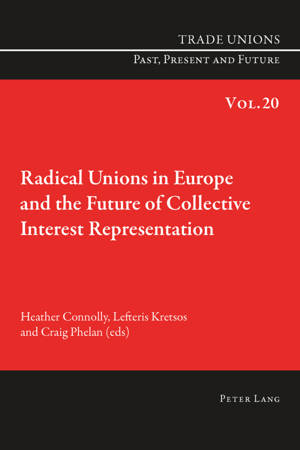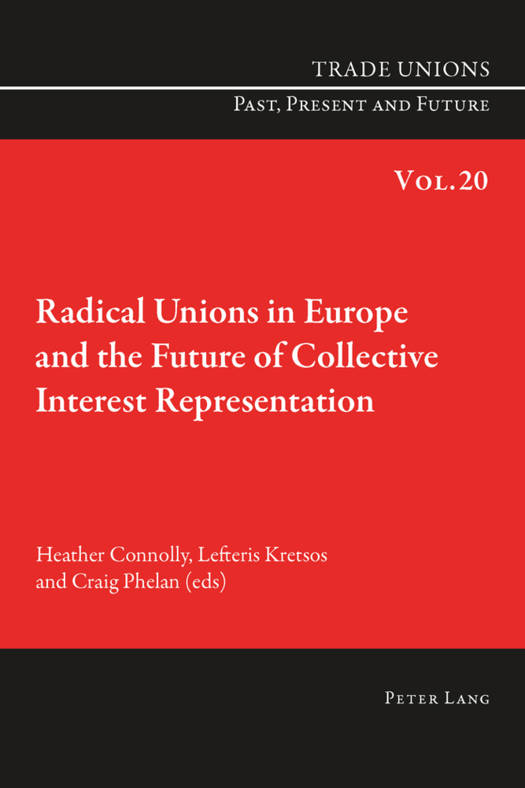
Bedankt voor het vertrouwen het afgelopen jaar! Om jou te bedanken bieden we GRATIS verzending (in België) aan op alles gedurende de hele maand januari.
- Afhalen na 1 uur in een winkel met voorraad
- Gratis thuislevering in België vanaf € 30
- Ruim aanbod met 7 miljoen producten
Bedankt voor het vertrouwen het afgelopen jaar! Om jou te bedanken bieden we GRATIS verzending (in België) aan op alles gedurende de hele maand januari.
- Afhalen na 1 uur in een winkel met voorraad
- Gratis thuislevering in België vanaf € 30
- Ruim aanbod met 7 miljoen producten
Zoeken
Radical Unions in Europe and the Future of Collective Interest Representation
€ 85,45
+ 170 punten
Omschrijving
This book analyses contemporary trends in radical unionism in Europe. It contains nine country case-studies that probe the limits and possibilities of trade union renewal with a focus on radical activity. The editors follow a broad definition of radical unionism, including trade union organisations that can be characterised as radical either in terms of ideology and political identity or in terms of organising and mobilising activity. The ongoing economic crisis and consequent austerity measures, and employers' strategies for increasing labour market flexibility have encouraged the deregulation of capitalism in Europe. The question this book asks is whether radicalised unionism, political action and grassroots activism present opportunities for union renewal and collective interest representation in this economic context. This question is examined in nine national contexts with diverse industrial relations frameworks and trade unions. The editors assess the degree to which we are witnessing the emergence of 'radical political unionism' as an alternative model of trade unionism in Europe, focused on class struggle, engagement in social movement activity beyond the workplace, and politicised union strategies aligned to new left-wing political formations.
Specificaties
Betrokkenen
- Uitgeverij:
Inhoud
- Aantal bladzijden:
- 264
- Taal:
- Engels
- Reeks:
- Reeksnummer:
- nr. 20
Eigenschappen
- Productcode (EAN):
- 9783034308038
- Verschijningsdatum:
- 16/04/2014
- Uitvoering:
- Paperback
- Formaat:
- Trade paperback (VS)
- Afmetingen:
- 152 mm x 229 mm
- Gewicht:
- 367 g

Alleen bij Standaard Boekhandel
+ 170 punten op je klantenkaart van Standaard Boekhandel
Beoordelingen
We publiceren alleen reviews die voldoen aan de voorwaarden voor reviews. Bekijk onze voorwaarden voor reviews.








